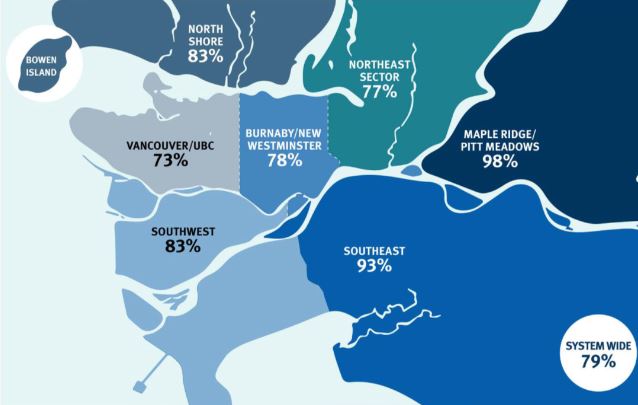Ridership on Metro Vancouver’s transit system rebounded to 80 per cent of its pre-pandemic levels by the end of last year, according to new data from TransLink.

The return to transit also appears to be picking up steam this year, with ridership hitting 87 per cent of 2019 levels in March, TransLink said.
The regional transit and transportation agency released its 2022 Transit Service Performance Review on Friday, which included a particular focus on ridership patterns last fall.

The report found that Metro Vancouver’s transit rebound appears to be outpacing other North American cities.
TransLink reported 194 million trips systemwide in 2022, the fifth-highest ridership on the continent, while Metro Vancouver ranks 24th for population.

Get breaking National news
It said Metro Vancouver’s transit system was also the first in North America to hit the 80 per cent milestone.

TransLink said for the full 2022 year, ridership on the system saw 48 per cent growth over 2021, with the greatest increase happening in the region’s eastern suburbs.
By the end of 2022, ridership in Pitt Meadows and Maple Ridge had hit 98 per cent of 2019 levels, TransLink said — a recovery driven by the addition of the new R3 Lougheed Highway RapidBus in 2020.
The rebound was also strong in the southeast part of Metro Vancouver, with ridership in Delta, Surrey, White Rock and Langley hitting 93 per cent of pre-pandemic levels last year.
TransLink said the southeast region has since eclipsed its 2019 levels, hitting 110 per cent in March.








Comments